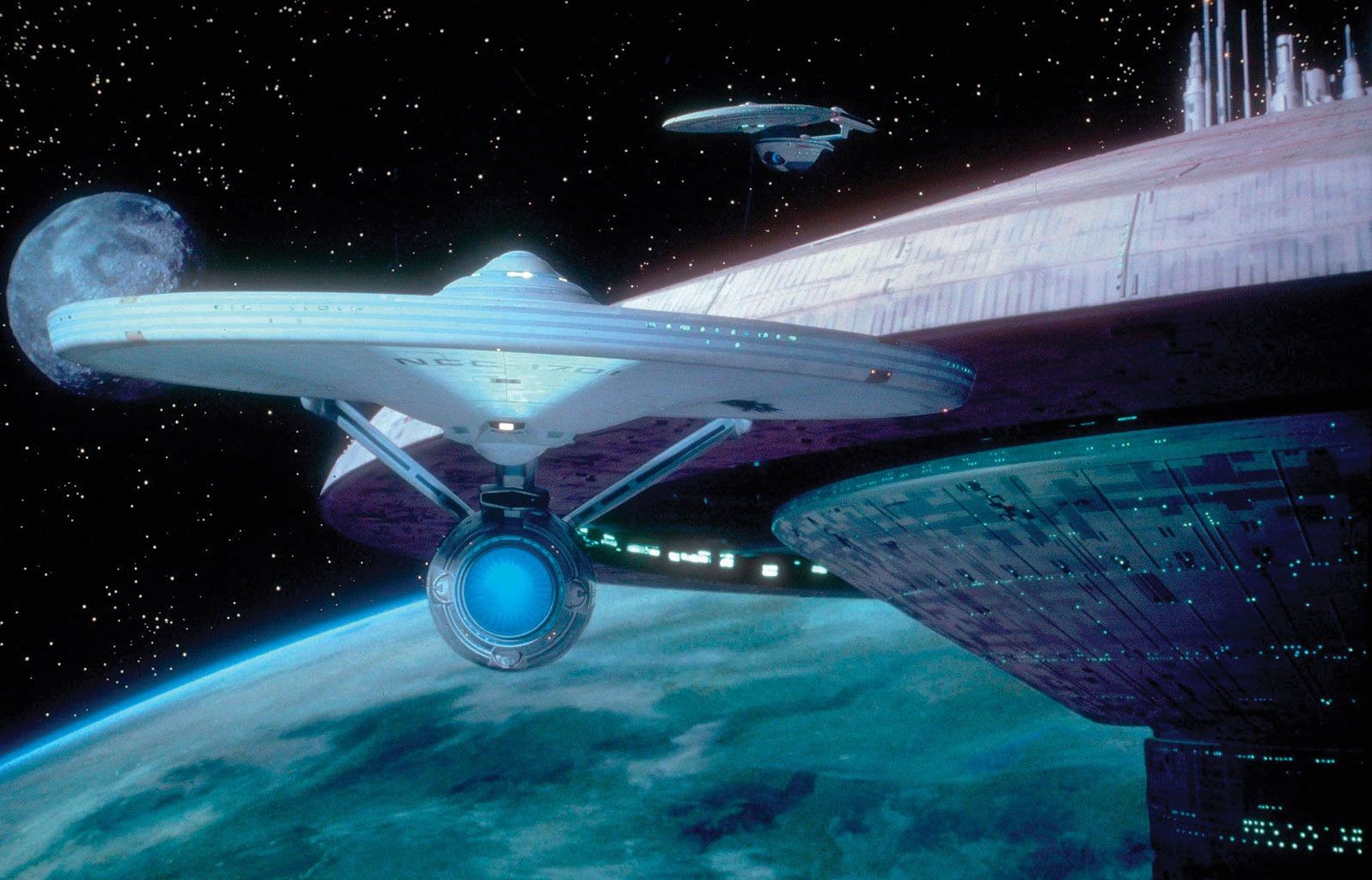Science fiction, often shortened to sci-fi or SF, is a captivating genre that explores the impact of actual or imagined science and technology on societies and individuals. It allows us to contemplate potential futures, grapple with complex ethical dilemmas, and examine the very essence of humanity in the face of technological advancements.
 Starship Enterprise from Star Trek III
Starship Enterprise from Star Trek III
Defining Science Fiction
At its core, what is sci-fi if not a form of speculative fiction? It distinguishes itself from fantasy by grounding its narratives, at least loosely, in scientific principles or extrapolations of existing technologies. While fantasy might rely on magic or the supernatural, science fiction seeks plausibility, even when venturing into the realm of the impossible. It presents a “what if” scenario based on scientific possibilities, driving the narrative forward with the potential consequences of those possibilities.
The Genesis of Science Fiction
The emergence of science fiction as a distinct genre is largely attributed to the social and technological upheavals of the Industrial Revolution. As society rapidly transformed due to advancements in machinery, manufacturing, and scientific understanding, writers began to explore the potential ramifications of these changes. They used their imagination to envision futures shaped by technology, both utopian and dystopian. The seeds of the genre were sown in the West, where the Industrial Revolution first took hold, but its influence has spread globally, transcending cultural boundaries.
Key Elements of Science Fiction
What is sci-fi without its signature themes and motifs? Several recurring elements define the genre:
- Space Travel and Exploration: Journeys to distant planets, encounters with alien civilizations, and the challenges of surviving in the vastness of space are hallmarks of science fiction.
- Robotics and Artificial Intelligence: The creation of artificial beings, their potential for sentience, and the ethical questions surrounding their rights and roles in society are recurring themes.
- Time Travel: The ability to traverse through time, altering the past or glimpsing the future, raises questions about causality, destiny, and the nature of reality.
- Alien Encounters: Interactions with extraterrestrial life forms, ranging from peaceful exchanges to hostile invasions, explore themes of cultural understanding, xenophobia, and the place of humanity in the universe.
- Dystopian Societies: Visions of oppressive futures controlled by technology, totalitarian regimes, or environmental collapse serve as cautionary tales about the potential consequences of unchecked power and societal decay.
- Utopian Societies: Idealized visions of future societies where technology has solved humanity’s problems, often serving as thought experiments or critiques of contemporary society.
Influential Figures in Science Fiction
Several authors have shaped the landscape of science fiction and contributed significantly to its development.
- H.G. Wells: A pioneer of the genre, Wells explored themes of social commentary and the potential dangers of scientific progress in works such as “The Time Machine” and “The War of the Worlds.”
- Jules Verne: Known for his “scientific romances,” Verne’s adventure stories like “Twenty Thousand Leagues Under the Sea” and “Journey to the Center of the Earth” captivated audiences with their blend of scientific speculation and imaginative storytelling.
- Isaac Asimov: A prolific writer, Asimov is best known for his “Foundation” series and his exploration of robotics and artificial intelligence.
- Arthur C. Clarke: Clarke’s “2001: A Space Odyssey” and other works explored themes of technological singularity, extraterrestrial contact, and the evolution of humanity.
- Philip K. Dick: Dick’s works, often adapted for film, explored themes of identity, reality, and the nature of consciousness in a world increasingly shaped by technology.
Science Fiction Beyond Literature
What is sci-fi today if not a multimedia phenomenon? Science fiction has transcended the boundaries of literature, permeating film, television, gaming, and other forms of media. From the groundbreaking special effects of “2001: A Space Odyssey” to the immersive worlds of “Star Wars” and the thought-provoking narratives of “Black Mirror,” science fiction continues to captivate audiences and inspire new generations of creators.
Science Fiction: A Reflection of Our World
Ultimately, science fiction serves as a powerful lens through which to examine our present and contemplate our future. By exploring the potential impacts of science and technology, it challenges us to consider the ethical implications of our choices, the nature of our humanity, and the kind of world we want to create. It is a genre that both entertains and provokes, inviting us to imagine the possibilities and navigate the challenges of an ever-changing world.